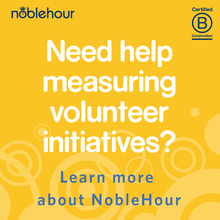This post was written by NobleHour Special Contributor Natasha Derezinski-Choo, a student at Grimsley High School in Greensboro, NC.
The end of Breast Cancer Awareness Month is approaching and like many awareness campaigns, it has come under some criticism. Some argue that companies and large corporations get carried away jumping on the “pink bandwagon” in order to sell more, while donating a very small portion of money to actual research. The happy, positive pink ribbons perhaps detract from the true devastation of this disease and some survivors feel alienated by Breast Cancer Awareness Month. Furthermore, some of these companies, despite advertising about the fight against breast cancer, continue to use harmful chemicals, including carcinogens—cancer-causing chemicals—, in their production. Though these companies may appear to have good intentions, and indeed their vast visibility no doubt does raise awareness, it falls to consumers to be fully aware of the repercussions of their purchases. 
That’s not to say large corporations are the only ones at fault. Critics also point to the average person for propagating some of the false-promises of simply raising awareness. Social media makes it increasingly easy to promote “awareness” through one’s personal online presence. However, it’s important to note that this heightened awareness should lead to more than just likes and retweets. It’s important that awareness ignites action and empowers people with knowledge.
Charlotte Alter writes in Time Magazine, “‘Awareness’ is a virus that preys on well-meaning minds. It tricks us into thinking that thought is the same as action, that acknowledging something is the same as fixing it. Awareness is a problem masquerading as a solution.”
It is important that when promoting awareness that our actions feed the momentum of a cause and not our vain desire to share with the digital world that we are altruistically aware of the cause. A recent example of effective social media awareness is the ALS ice bucket challenge, which created immense amounts of awareness about this disease while also raising funds for research. However, one might also argue that advertising one’s ability to waste clean water is a display of developed-world privilege, as almost 800 million people have little to no access to clean water. In terms of Breast Cancer Awareness Month, of course, no one is arguing against promoting awareness and preventative measures for breast cancer, but critics like Alter are arguing for better, more impactful awareness—awareness that starts action. Rather than just hashtagging and liking, perhaps one can also make a donation to breast cancer research. The key is to use our awareness to truly empower ourselves and others with knowledge.
In response to the critics of rampant, vain social media awareness, some people still argue that awareness campaigns alone are enough. As Scott Davis writes in Forbes, “If not a single extra dollar is raised in October, but one woman detects her early-stage breast cancer as a result of “going pink” awareness, then it is all worth it.”
I’ll leave it for you to decide. To what extent are you truly promoting awareness, and to what extent is that awareness igniting impactful change?
Related:
Breast Cancer Awareness Month: Opportunities to make a difference





